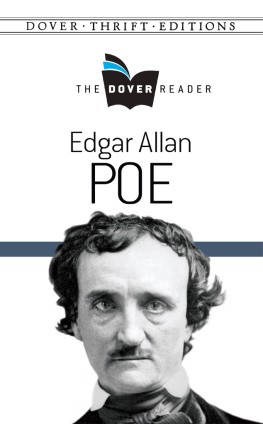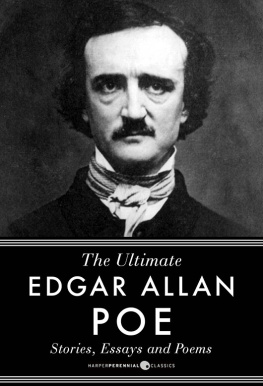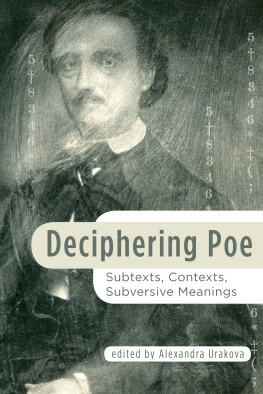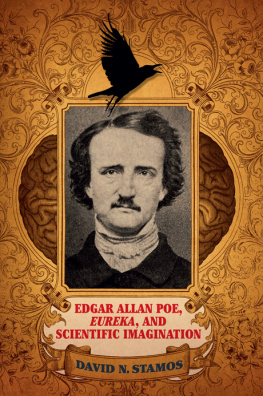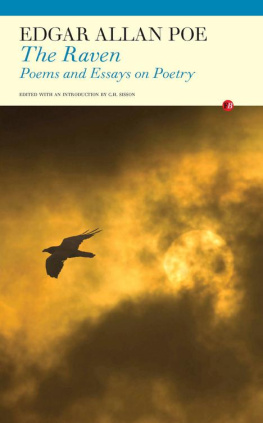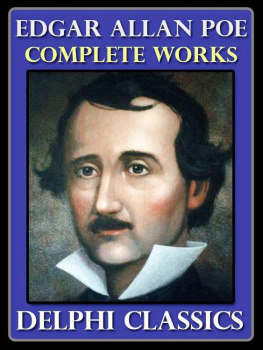Michelle Van Parys - The Man of the Crowd: Edgar Allan Poe and the City
Here you can read online Michelle Van Parys - The Man of the Crowd: Edgar Allan Poe and the City full text of the book (entire story) in english for free. Download pdf and epub, get meaning, cover and reviews about this ebook. year: 2020, publisher: Princeton University Press, genre: Detective and thriller. Description of the work, (preface) as well as reviews are available. Best literature library LitArk.com created for fans of good reading and offers a wide selection of genres:
Romance novel
Science fiction
Adventure
Detective
Science
History
Home and family
Prose
Art
Politics
Computer
Non-fiction
Religion
Business
Children
Humor
Choose a favorite category and find really read worthwhile books. Enjoy immersion in the world of imagination, feel the emotions of the characters or learn something new for yourself, make an fascinating discovery.

- Book:The Man of the Crowd: Edgar Allan Poe and the City
- Author:
- Publisher:Princeton University Press
- Genre:
- Year:2020
- Rating:4 / 5
- Favourites:Add to favourites
- Your mark:
- 80
- 1
- 2
- 3
- 4
- 5
The Man of the Crowd: Edgar Allan Poe and the City: summary, description and annotation
We offer to read an annotation, description, summary or preface (depends on what the author of the book "The Man of the Crowd: Edgar Allan Poe and the City" wrote himself). If you haven't found the necessary information about the book — write in the comments, we will try to find it.
The Man of the Crowd: Edgar Allan Poe and the City — read online for free the complete book (whole text) full work
Below is the text of the book, divided by pages. System saving the place of the last page read, allows you to conveniently read the book "The Man of the Crowd: Edgar Allan Poe and the City" online for free, without having to search again every time where you left off. Put a bookmark, and you can go to the page where you finished reading at any time.
Font size:
Interval:
Bookmark:
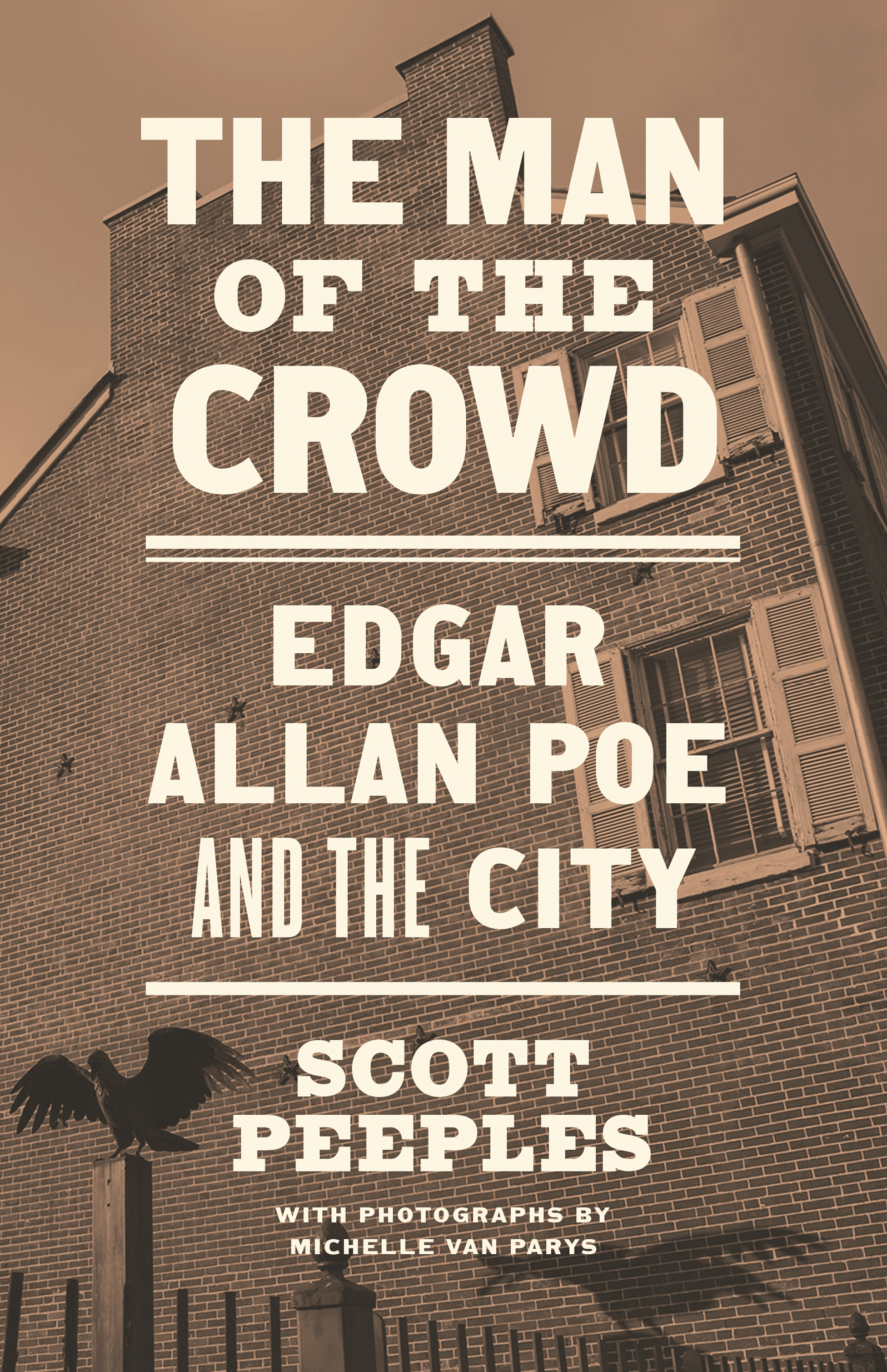
The Man of the Crowd
THE MAN OF THE CROWD
EDGAR
ALLAN POE
AND THECITY
SCOTT PEEPLES
PHOTOGRAPHS BY MICHELLE VAN PARYS
PRINCETON UNIVERSITY PRESS
PRINCETON AND OXFORD
Copyright 2020 by Princeton University Press
Requests for permission to reproduce material from this work should be sent to
Published by Princeton University Press
41 William Street, Princeton, New Jersey 08540
6 Oxford Street, Woodstock, Oxfordshire OX20 1TR
press.princeton.edu
All Rights Reserved
LCCN 2020020492
ISBN 9780691182407
ISBN (e-book) 9780691212081
Version 1.0
British Library Cataloging-in-Publication Data is available
Editorial: Anne Savarese and Jenny Tan
Production Editorial: Leslie Grundfest and Debbie Tegarden
Text Design: Leslie Flis
Production: Erin Suydam
Publicity: Jodi Price and Amy Stewart
Jacket/Cover Credit: Michelle Van Parys
For Jerry Kennedy
- ix
Throughout the text, Poes works are cited parenthetically with the following abbreviations:
D = Doings of Gotham, edited by Jacob E. Spannuth and Thomas Ollive Mabbott (Folcroft, PA: Folcroft Library Editions, [1929] 1974).
ER = Essays and Reviews, edited by G. R. Thompson (New York: Library of America, 1984).
EU = Eureka, edited by Stuart Levine and Susan F. Levine (Urbana: University of Illinois Press, 2004).
CL = The Collected Letters of Edgar Allan Poe, 2 vols., 3rd ed.; edited by John Ward Ostrom, Burton R. Pollin, and Jeffrey A. Savoye (New York: Gordian, 2008).
P = Complete Poems, edited by Thomas Ollive Mabbott (Urbana: University of Illinois Press, [1969] 2000).
T = Tales and Sketches, 2 vols., edited by Thomas Ollive Mabbott (Urbana: University of Illinois Press, [1978] 2000).
The Man of the Crowd
NO PLACE LIKE HOME
In 1823, when Edgar Allan Poe was a restless fourteen-year-old living with his foster family in Richmond, Virginia, a well-known actor named John Howard Payne wrote the lyrics to what would become one of the most popular songs of the nineteenth century:
Mid pleasures and palaces, though we may roam,
Be it ever so humble, theres no place like home,
A charm from the sky seems to hallow us there,
Which, seek through the world, is nere met with elsewhere,
Home, home, sweet, sweet home!
Theres no place like home, oh theres no place like home!
An exile from home splendor dazzles in vain,
Oh, give me my lowly thatched cottage again,
The birds singing gaily that come at my call,
Give me them with that peace of mind, dearer than all.
Home, home, sweet, sweet home!
Theres no place like home, oh theres no place like home!
Coincidentally, Payne had appeared onstage opposite Poes mother throughout April and May 1809, just after Edgar was born. Because his mother died before he turned three, Edgar probably never knew of this connection to Payne, but he surely knew the song Home Sweet Home, which was a sheet-music blockbuster performed in parlors and on stages throughout his lifetime.
Like most songs about home, Paynes lyric is really about longing for home. It first appeared in the operetta Clari; or, the Maid of Milan, where it was sung by the unfortunate title character after she left her home and fell prey to a wicked seducer. Appropriately, the American Payne composed the song while living in Paris. He wrote to his loved ones around the same time, My yearnings toward Home become stronger as the term of my exile lengthens I feel the want of you, parts of myself, in this strange world, for though I am naturalized to vagabondage, still it is but vagabondage I long for a home about me. Paynes song, and the endless stream of popular music evoking the same longing, resonated with generations of Americans who found themselves somewhere other than home.
In the first half of the nineteenth century, somewhere-other-than-home was likely to be a city such as the ones where Edgar Poe spent most of his life. The years 182050three-fourths of Poes lifetimesaw the most rapid urbanization in American history, according to historian Daniel Walker Howe. Living far away from that center, that focal point, is what the song Home Sweet Home is about.
Poe was not one of those who left the farm for the factory, but, with the exception of a few years spent in college and the army, he lived in cities his entire life. And, as the son of actors whose companies performed up and down the eastern seaboard, Poe was not only a child of the city but a child of transience, constantly moving from place to place. If Payne felt exiled, or naturalized to vagabondage, Poe was born into vagabondage. Throughout his childhood, living with the Allan family of Richmond, he was acutely aware of his orphan status, as he was never legally adopted or included in his foster fathers will. Including changes of address within cities, Poe relocated approximately thirty-five times in his forty-year life. Although he called the city of Richmond home as a young man, for most if his life, homehomeland or cosmic focal pointwas experienced not as something lost but something he never really knew. Poe was not so much uprooted as unrooted.
In his vagabondage as well as his struggles with poverty, Poe differed from most major American authorsat least most major white authorsof his time. Poes contemporary Nathaniel Hawthorne, for instance, was very much rooted in Salem, Massachusetts, and, except for an extended residence in Europe from 1853 to 1860, lived in New England his entire life. Though never wealthy, Hawthornes living conditions were solidly middle class, and he had a support system that included a United States president, Franklin Pierce. Harriet Beecher Stowe, who lived twice as long as Poe, was born in Litchfield, Connecticut, and died in nearby Hartford, where she spent her last thirty-six years. When she lived in other cities (Cincinnati, Ohio, and Brunswick, Maine), she and her family stayed for over a decade, in comfortable, spacious homes. James Fenimore Cooper, who was born two decades before Poe but outlived him by three years, is closely associated with Cooperstown, New York, the town his father established, and where he spent his last fifteen years. In between, he lived prosperously in New York City and, for seven years, in Europe. All of the other figureheads of the American Renaissance were rooted in a specific city, town, or region, even if they did not spend their entire lives thereConcord, Massachusetts, for Ralph Waldo Emerson and Henry David Thoreau; New York City for Walt Whitman and Herman Melville; and Amherst, Massachusetts, for Emily Dickinson. Whitman and Melville experienced economic hardship as children, and Thoreau chose a Spartan economic life as an adult, but none of them experienced the career-long poverty that Poe did, and none of them moved nearly as often. Poes rootless life might not have been unique among poor yet ambitious men of his time, but it seems to have been quite unlike that of his canonical contemporaries.
This book is an attempt to tell the story of that unrooted life with a distinct focus on the American cities where Poe lived for extended periods of time: Richmond, Baltimore, Philadelphia, and New York. Of course, Poes life does not fit neatly into chapters set in those four cities. There is also Boston, his birthplace; London, where he spent five years as a boy with the Allans; Charlottesville, Virginia, where he was a student; West Point, New York, where he was a cadet; Sullivans Island, South Carolina, and Old Point Comfort, Virginia, where he was an enlisted man. Moreover, after leaving Richmond in 1827, he would return several times to visit and would relocate there for over a year, in 183537. He lived in New York on two separate occasions, though little is known about the first, shorter stay. While I describe all of those departures and arrivals, in this book I will incorporate them into chapters anchored by the cities that define distinct periods of Poes life, then conclude with a chapter chronicling the last year and a half of that life, a period defined less by residence than by travel.
Font size:
Interval:
Bookmark:
Similar books «The Man of the Crowd: Edgar Allan Poe and the City»
Look at similar books to The Man of the Crowd: Edgar Allan Poe and the City. We have selected literature similar in name and meaning in the hope of providing readers with more options to find new, interesting, not yet read works.
Discussion, reviews of the book The Man of the Crowd: Edgar Allan Poe and the City and just readers' own opinions. Leave your comments, write what you think about the work, its meaning or the main characters. Specify what exactly you liked and what you didn't like, and why you think so.

